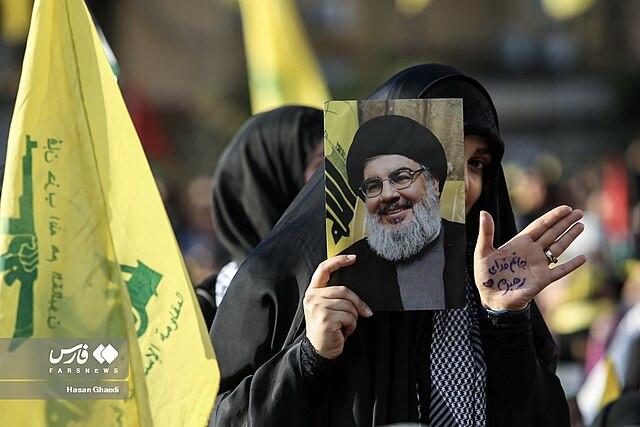
U.S. Warns Hezbollah: Don’t Expect Washington to Restrain Israel
In a significant development amid rising tensions along the Israeli-Lebanese border, U.S. officials have delivered a stark warning to Hezbollah, cautioning the militant group not to assume that Washington can prevent Israel from launching an attack. The message, aimed at de-escalating the burgeoning crisis, underscores the U.S. government’s concern over potential miscalculations that could ignite a broader Middle East conflict.
The warning to Hezbollah has been conveyed indirectly, given that the U.S. does not engage directly with the group, which is designated as a terrorist organization by Washington. Instead, the message has been relayed through public statements and intermediaries. U.S. special envoy Amos Hochstein and other officials have been actively traveling in the region, attempting to mitigate tensions and prevent a larger war.
“Israel’s gotta do what they gotta do,” a Defense Department official remarked, reflecting the resignation among U.S. officials to the possibility of an Israeli offensive against Hezbollah. The ongoing skirmishes between Israel and Hezbollah, which have intensified following Hamas’ attack on Israel on October 7, have heightened concerns that the conflict could escalate into an all-out war.
U.S. officials have stressed that while they support Israel’s right to defend itself, they are committed to preventing further escalation. Matthew Miller, the State Department spokesperson, emphasized the need for a diplomatic resolution to the conflict. “We think there ought to be a diplomatic resolution to the conflict across the Israel-Lebanon border that is keeping tens of thousands of families on each side of the border from returning to their homes,” Miller stated.
Israeli Defense Minister Yoav Gallant, currently in Washington for talks with President Joe Biden’s aides, is likely focusing much of his discussions on the crisis with Hezbollah. U.S. officials have indicated that if Israel faces severe retaliation from Hezbollah, such as a barrage of rockets on major cities, the U.S. might move toward more direct military support for Israel. This could include replenishing Israel’s Iron Dome missile defense system and providing intelligence support.
The Biden administration has been clear that it will support Israel in defending itself, but it also aims to avoid a broader conflict. Hochstein’s recent meetings in Lebanon and Israel were part of these efforts. During his visit to Beirut, Hochstein conveyed to Lebanese officials that Hezbollah’s assumption that the U.S. could restrain Israel is mistaken. He emphasized that Hezbollah should seek a diplomatic solution rather than escalating tensions.
Israeli Prime Minister Benjamin Netanyahu’s top advisers, who recently visited Washington, reiterated that Israel does not seek war with Hezbollah and prefers a diplomatic resolution. However, the reality on the ground suggests that Israeli leaders are preparing for various scenarios, including potential military action if diplomacy fails.
The history of Israel-Hezbollah relations is fraught with tension and conflict. The current situation is further complicated by the broader regional dynamics, including Iran’s support for Hezbollah and the ongoing conflict in Gaza. U.S. officials have been working to find a de-escalation strategy that does not necessarily require a ceasefire in Gaza but could prevent a new front from opening along the Israel-Lebanon border.
One potential pathway to de-escalation could be the conclusion of Israel’s military operation in Rafah, which might signal a reduction in high-intensity operations in Gaza. This, in turn, could allow Israel to reposition its forces to better address threats from Hezbollah.
Source » btimesonline.com





